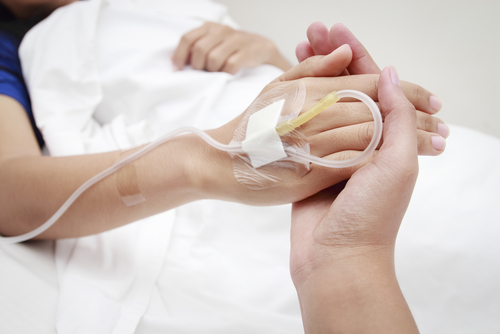Long-term Data Confirms Kyprolis Survival Benefit in Relapsed Myeloma Patients
Written by |

New long-term data from the Phase 3 ENDEAVOR trial has shown that relapsed multiple myeloma patients treated with Kyprolis (carfilzomib) plus dexamethasone survive a median of nine months longer than those who received Velcade (bortezomib) and dexamethasone, Amgen announced.
The newly-reported 24 percent reduction in the risk of death is even higher than previously reported, supporting the use of Kyprolis as the standard of care for this patient population.
“We are excited about the three-year follow-up of the ENDEAVOR study as the overall survival benefit reflects both the efficacy and the long-term safety of this Kyprolis regimen in patients with relapsed multiple myeloma,” Sean E. Harper, MD, executive vice president of Research and Development at Amgen, said in a press release. “These results confirm that when a patient relapses, Kyprolis should replace Velcade as a standard-of-care.”
The randomized ENDEAVOR trial (NCT01568866) was conducted in 235 research centers worldwide and included 929 patients with relapsed multiple myeloma who had received one to three prior treatments.
Initial overall survival results had shown that Kyprolis, given twice weekly as a 30-minute infusion, plus 20 mg dexamethasone reduced the risk of death by 21 percent over Velcade plus dexamethasone, extending the patients’ survival by 7.6 months. These findings were recently reported in a study featured in The Lancet Oncology.
These initial positive results were used to support Amgen’s supplemental New Drug Application (sNDA) seeking the approval of Kyprolis for relapsed myeloma patients, which the U.S. Food and Drug Administration (FDA) has accepted for review.
The new data, requested by the FDA, shows data from patients followed for at least three years after enrollment in the study. It showed that patients on the Kyprolis arm had a median overall survival of 47.8 months, versus 38.8 months in the Velcade group. This nine-month survival benefit represented a reduction in the risk of death by 24 percent.
“These data, along with compelling overall survival results from the Phase 3 ASPIRE trial [NCT01080391], clearly demonstrate that Kyprolis-based regimens should be considered new standards of care for appropriate patients with relapsed multiple myeloma,” Harper said in an earlier press release.
The safety profile of Kyprolis in this updated analysis was consistent with previously released data from ENDEAVOR. The most common treatment-related adverse events were anemia, diarrhea, fever, hypertension, difficulty breathing, fatigue, cough, insomnia, upper respiratory tract infection, nausea, inflammation of the lungs (bronchitis), lack of energy, back pain, low blood platelets levels, water retention, headache, and muscle spasms.
“The current three-year follow-up analysis demonstrates that this proteasome inhibitor continues to demonstrate a prolonged overall survival benefit and consistent safety profile when combined with dexamethasone for relapsed multiple myeloma patients,” said Robert Orlowski, MD, PhD, Florence Maude Thomas Cancer Research professor and chair, ad interim, Department of Lymphoma and Myeloma at The University of Texas MD Anderson Cancer Center.



